
What is Natural Processed Coffee
Natural coffee processing is the oldest and most traditional method. The coffee beans are left to dry in the sun, which gives them a unique flavor. In the most basic sense, “Natural” processed coffees are coffees dried in the fruit. “Natural” is the most popular term for the whole in-cherry drying, but you may also hear these coffees called dry-process, traditioal-dried, sun-dried or cherry-dried.
Origins of Our Coffee
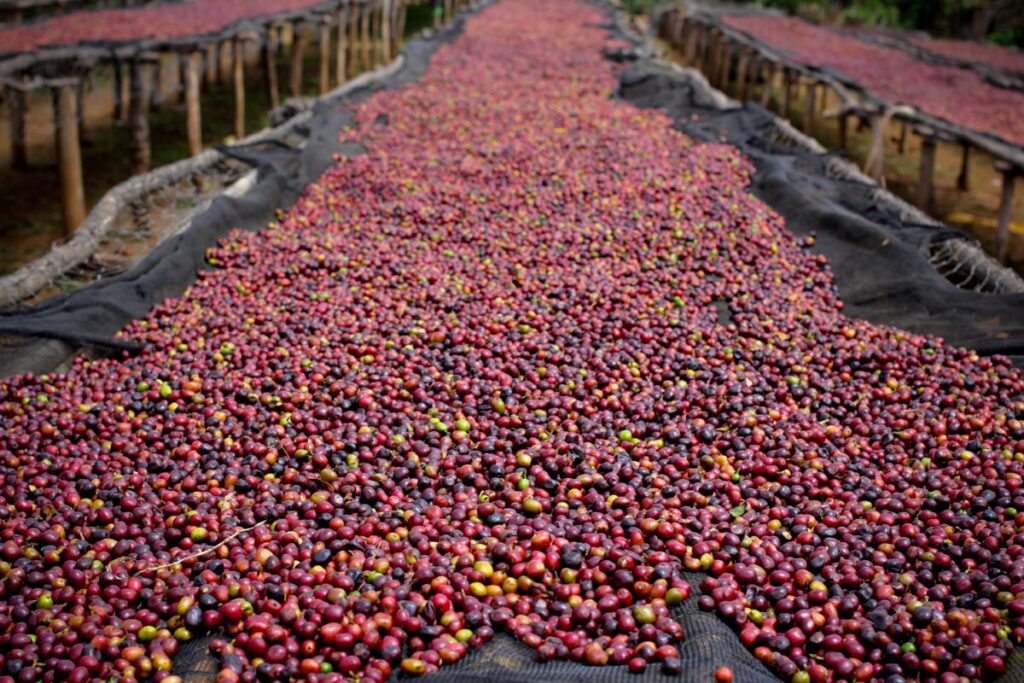
Sidama Coffee
Sidamo is one of Ethiopia’s most prolific growing regions, producing vast quantities of consistently excellent coffee year after year. This region’s coffee is noted for its rich, complex body, as well as a bright, energetic aftertaste that is fairly consistent from year to year, making it a must-have Ethiopian coffee for any coffee roaster.
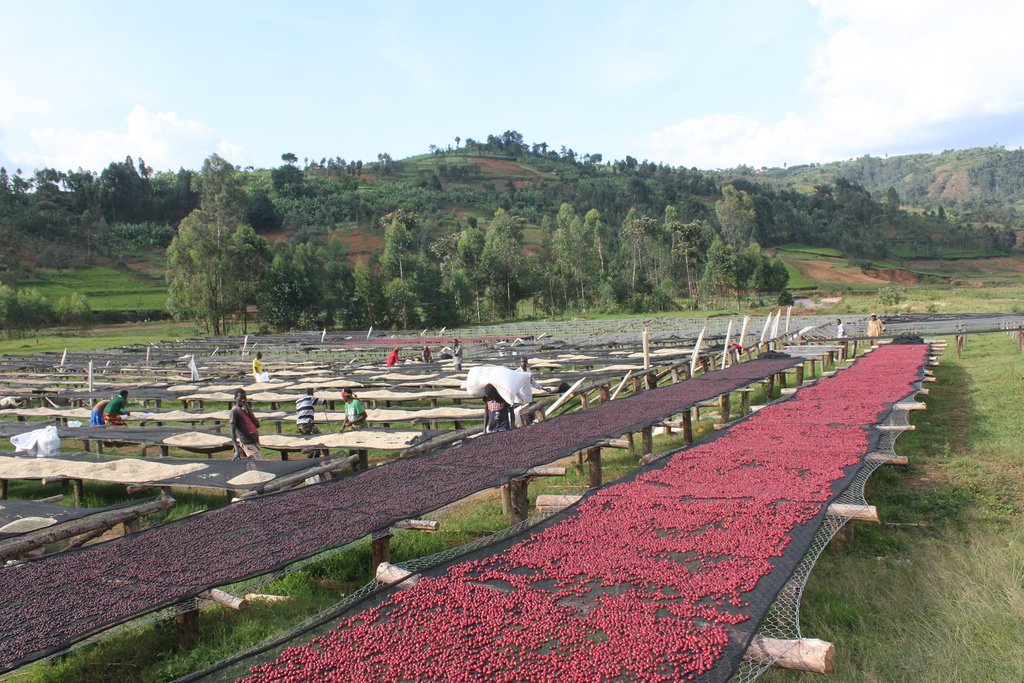
Guji Coffee
Guji is a zone in Ethiopia’s Oromia region. Guji is bounded on the south by Borena, on the west by the Southern Nations Nationalities and Peoples Region, on the north by the Ganale Dorya River, which divides it from Bale, and on the east by the Somalia region. Mount Dara Tiniro is the tallest mountain in this zone. Nagele Borana, the administrative headquarters, is one of the zone’s major cities and settlements.
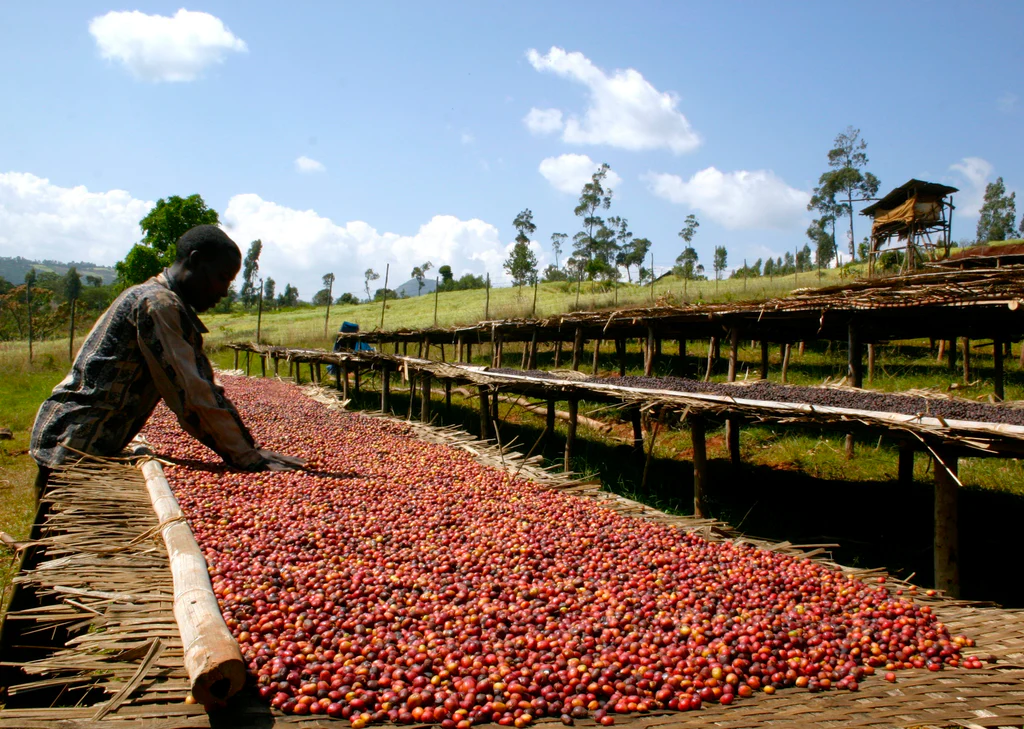
Gelana Geisha Coffee
In the first several days, the cherries are dried to a thickness of 3-4 cm. After a few days, the layers had grown to a height of 6-10 cm. The coffee cherries are swept occasionally with their hands and are covered during the warmest hours of the day to shield them from the sun’s rays and again at night to prevent humidity. This ensures quality since the coffee is rested and dried evenly. Drying might take up to 20 days at high elevations.
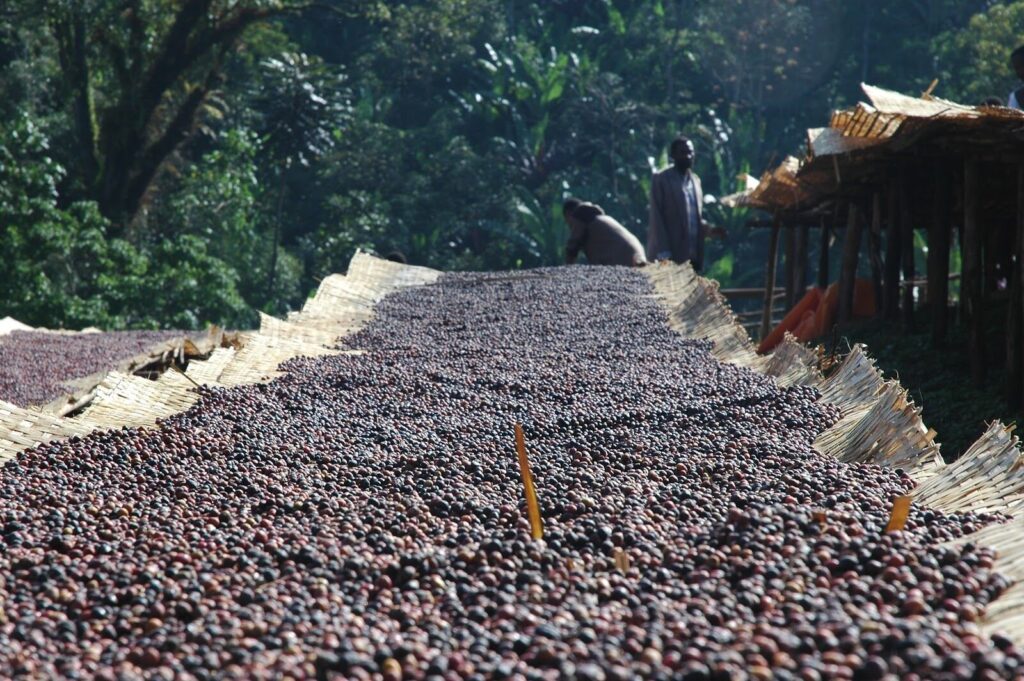
Jimma Coffee
jimma Zone, which is divided into jimma A and jimma B, produces 100,000 metric tones of unwashed coffee per year (also known as Ilubabour). Farmers pick this coffee and dry it at home before selling the dried cherry to Akrabis (local dealers) when they need money.
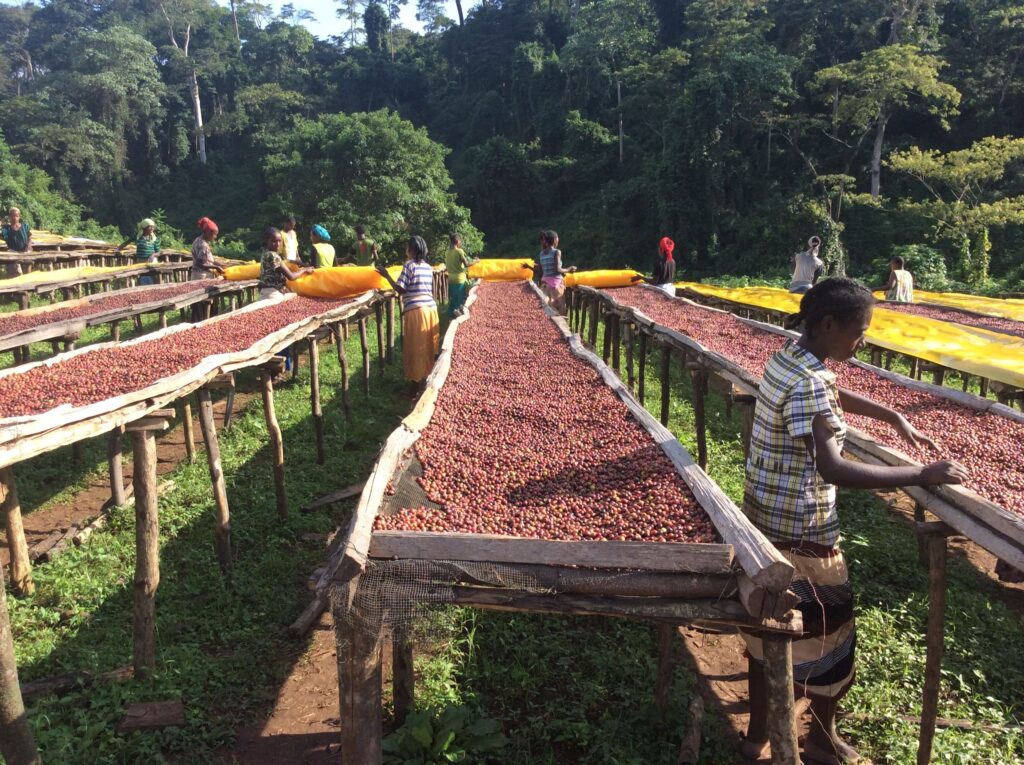
Yirgacheffe Coffee
Ethiopia’s most mysterious and complicated profiles found in Yirgacheffe. This is why this little region has established such a strong presence in the worldwide coffee industry. Yirgacheffe coffee is prized for its brilliant point citrus acidity. Its well-bodied, balanced cup of mocha, mixed with floral, spicy ingredients and an assortment of fruity flavors, creates a rich and nuanced tasting wheel. This place is well-known for its washed coffees, but it is also gaining popularity for its delicious balanced naturals.
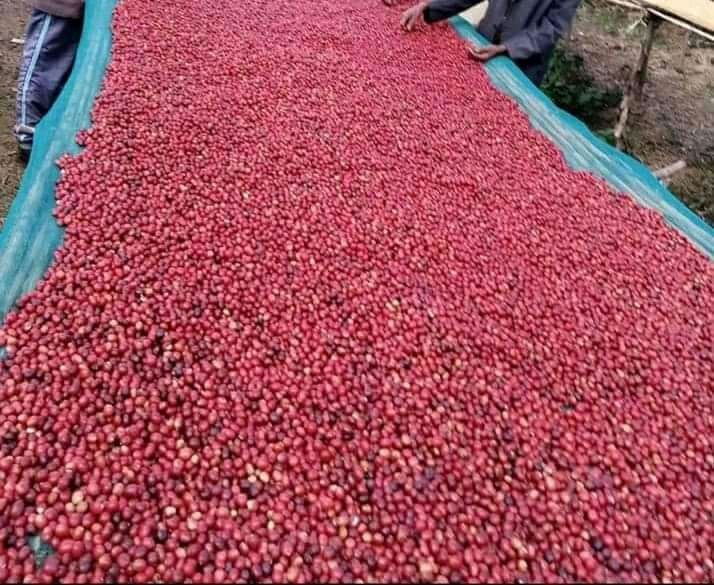
Nekemte Coffee
Nekemte coffee is grown in Western Ethiopia and is prized for its nice fruity flavor. Higher-quality coffee can often be distinguished by honey, citrus, and flowery flavors. It features long, elongated beans that range in color from green to brownish. The cup is typically clean, with a faint fruity acidic flavor and the body of a premium mocha. It is a crucial component of a specialty roaster’s blend, but it also makes a superb gourmet single.
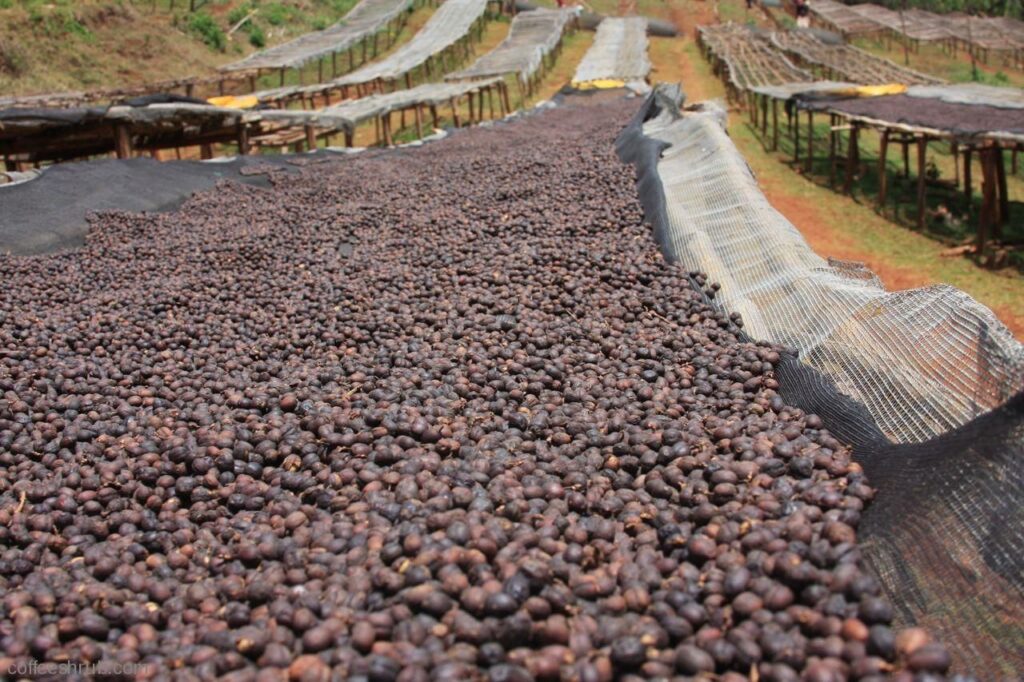
Harrar Coffee
Ethiopian Harrar coffee, a wild and exotic dry processed (natural) Arabica coffee cultivated on tiny farms in the Oromia area (formerly Harrar) of southern Ethiopia at heights between 1,400 meters and 2,000 meters, is heavy-bodied, spicy, and aromatic. East of Addis Abeba, where the nation’s capital is located, is the province of Harrar.
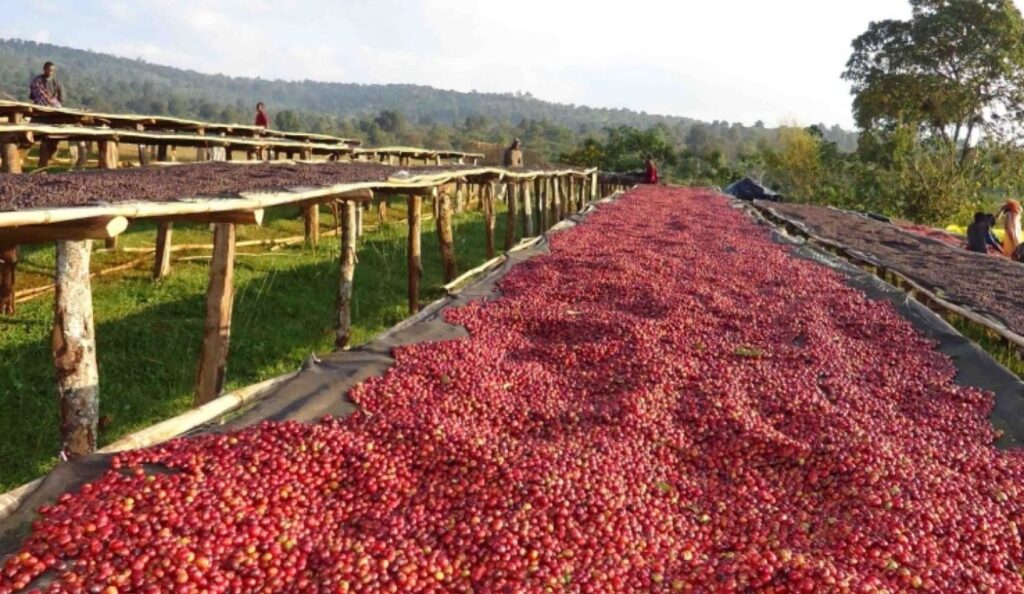
Bale Coffee
Bale Mountain Farm grows a combination of local research center types and indigenous forest kinds transplanted to small family plots. Ethiopian Heirloom cultivars are a cross between local native Typica hybrids and new and improved strains of previous strains.

